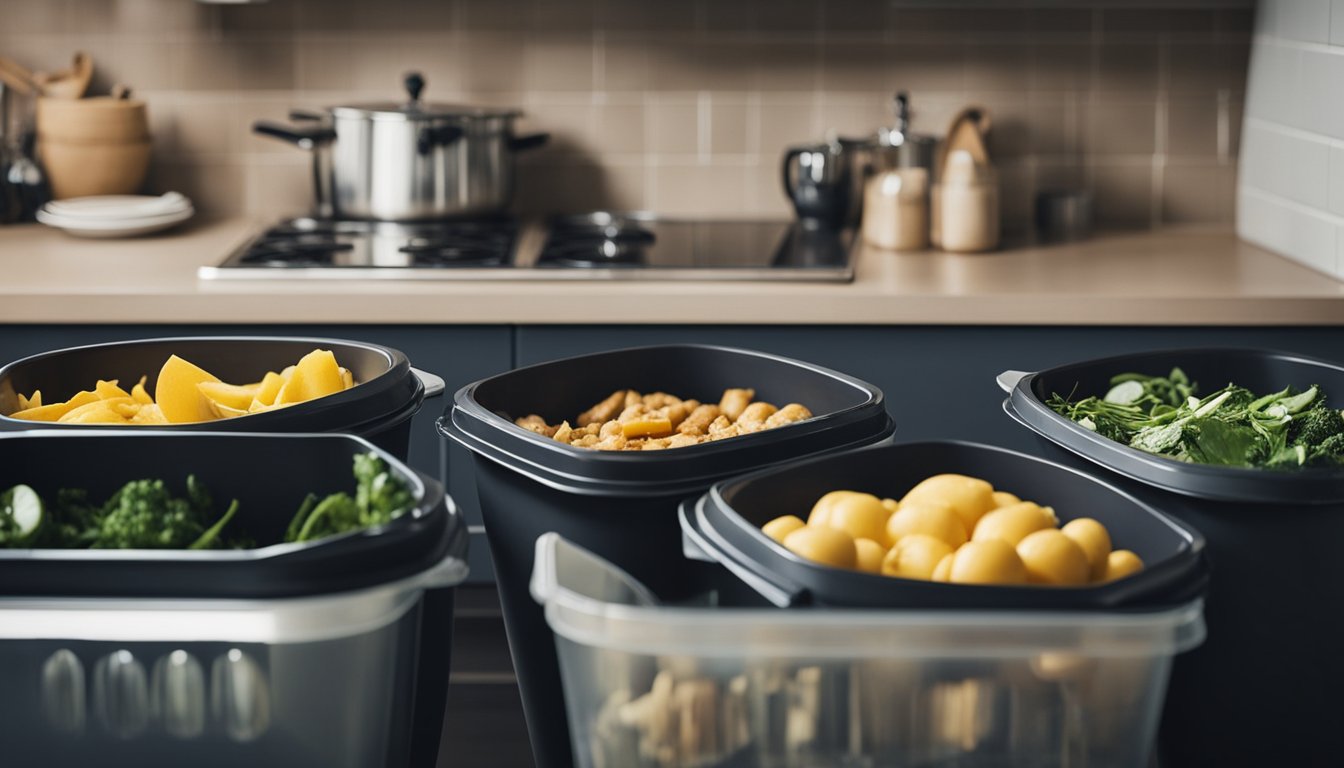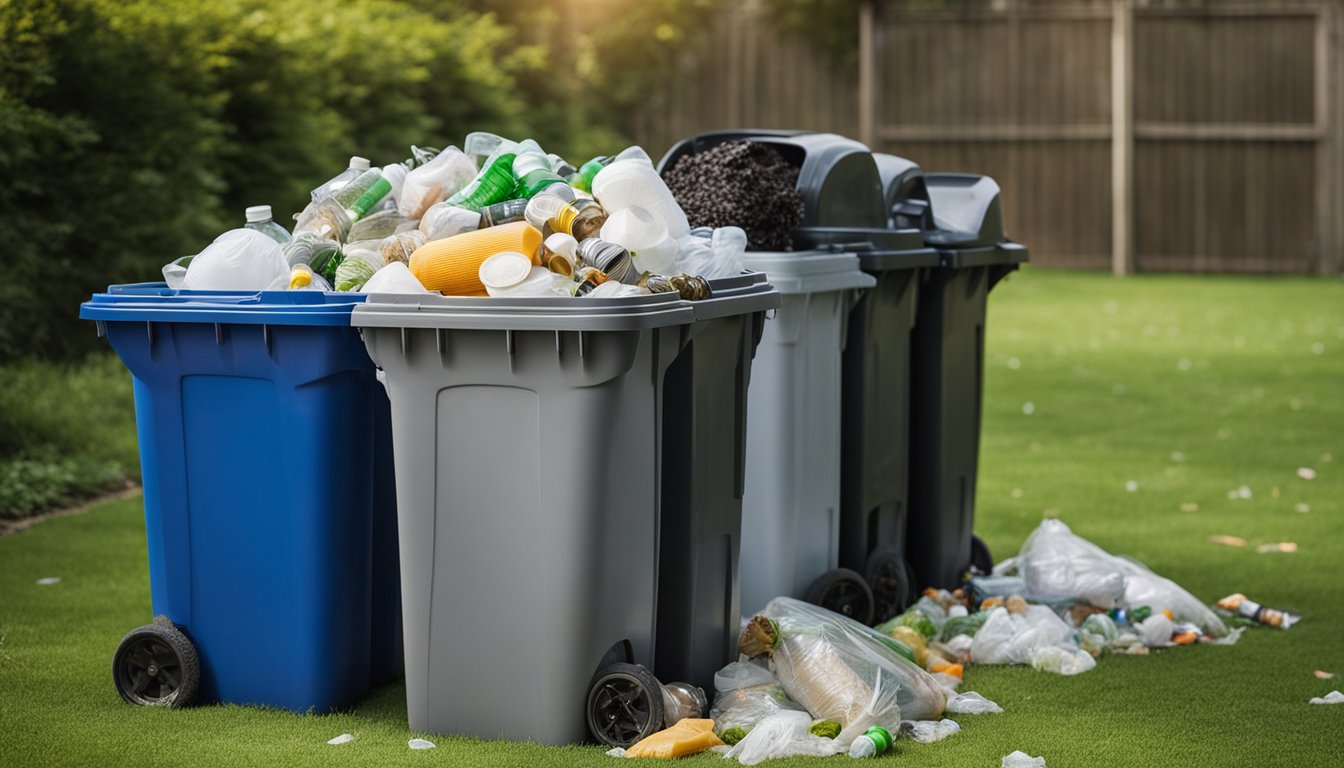Late updated: 02 Jul 2024 08:07
Written by: Sarah Hollister
Sustainable Waste Minimisation For Busy Families: Practical Tips and Strategies
Busy families often struggle to balance sustainability with their hectic schedules. Yet, sustainable waste minimisation can be easy and rewarding when approached with the right strategies.

By incorporating small, manageable changes into our daily routines, we can significantly reduce our environmental footprint. From rethinking how we shop to teaching our children the importance of recycling, there are many practical ways to make a difference.
In our guide, we'll share actionable tips that fit seamlessly into a busy family's lifestyle. We'll explore simple ways to cut down on waste at home and on the go, helping you contribute to a healthier planet without overhauling your life.
Key Takeaways
- Small changes in daily routines can greatly reduce waste.
- Practical strategies can fit into any busy family's lifestyle.
- Teaching children about sustainability fosters lifelong eco-friendly habits.
Fundamentals of Waste Minimisation

Effective waste minimisation includes understanding waste management and applying the principles of reduce, reuse, and recycle. These fundamentals help us reduce our environmental impact and work towards a sustainable future.
Understanding Waste Management
Waste management encompasses the collection, transport, processing, recycling, and disposal of waste. It aims to reduce the negative impacts of waste on the environment and human health.
By focusing on what we discard, we can identify patterns and make necessary changes. For instance, separating recyclables from general waste reduces the amount of rubbish heading to landfills.
Effective waste management also utilises the principles of a circular economy, where resources are kept in use for as long as possible, reducing the need for new materials.
Principles of Reduce, Reuse, Recycle
The three Rs—reduce, reuse, recycle—form the backbone of waste minimisation. By reducing our consumption, we produce less waste. This involves thoughtful purchasing and avoiding single-use products.
Reusing items extends their lifecycle and reduces the need for new products. Simple practices include repurposing containers and donating used goods.
Recycling converts waste materials into new products, reducing the demand for raw materials and energy. Effective recycling involves understanding what materials can be recycled and following local guidelines. For example, recycling paper, glass, and certain plastics can significantly cut down on waste.
Following these principles, we contribute to a circular economy and promote a more sustainable future. By incorporating these practices into our daily routines, we can significantly reduce our environmental footprint.
Practical Strategies for Families
To make sustainable waste minimisation feasible for busy families, it's crucial to focus on everyday practices, involve children in eco-friendly activities, and make informed shopping choices. Each of these strategies helps reduce household waste and promotes a more sustainable lifestyle.
Everyday Waste Reduction Techniques
Firstly, we can focus on reducing food waste. Meal planning and using leftovers creatively can significantly cut down on food disposal. Composting organic waste like vegetable peels and eggshells decreases the overall waste going to landfills.
We can also minimise waste by avoiding disposable products. Opt for reusable items such as cloth napkins, stainless steel water bottles, and glass storage containers. Additionally, a comprehensive home recycling program helps manage and recycle paper, plastic, and glass effectively.
Involving Children in Sustainability Practices
Children can play a vital role in our sustainability efforts. Starting a compost heap in the garden is an educational and fun project that teaches them about natural recycling. They learn the importance of reducing organic waste and reusing materials.
We can also involve them in sorting recyclables and understanding the three "R's": Reduce, Reuse, and Recycle. Engaging in community clean-up events, or eco-friendly school projects, helps them appreciate the impact of waste on our environment and encourages lifelong sustainable habits.
Eco-Friendly Shopping and Product Choices
When shopping, choosing eco-friendly products makes a significant difference. We can select items with minimal packaging or packaging made from recyclable materials. Buying in bulk and avoiding overconsumption helps reduce waste.
Opting for cleaning products with fewer hazardous chemicals and selecting energy-efficient appliances also supports waste minimisation. Evaluating and switching to products made from sustainable resources further reduces our environmental footprint and encourages manufacturers to produce less harmful items.
Implementing these practical strategies can transform our household into a more sustainable and eco-friendly environment, leading to long-term benefits for our family and the planet.
Frequently Asked Questions

In the context of busy families, sustainable waste minimisation involves adopting effective strategies, practical waste management practices, and forming well-constructed plans. It's essential to understand how our daily routines can support waste reduction and its impact on environmental conservation.
What are some effective strategies that households can adopt to reduce waste?
Effective strategies that households can adopt include reducing single-use plastics, composting organic waste, and purchasing items with minimal packaging. Additionally, families can prioritise reusable products and buy in bulk to lessen individual packaging waste. Encouraging the use of digital documents instead of paper also significantly reduces household waste.
Could you provide examples of sustainable waste management practices suitable for busy families?
Busy families can engage in practices such as meal planning to minimise food waste, setting up recycling stations at home, and using reusable shopping bags. It's also beneficial to donate unwanted items instead of discarding them. These practices help to manage household waste practically and efficiently.
How might one construct a waste minimisation plan for a home environment?
Constructing a waste minimisation plan involves auditing current waste generation levels, setting clear reduction goals, and identifying actionable steps. We should focus on key areas like food waste, plastic use, and recycling habits. Monitoring progress and adjusting the plan as needed ensures that it remains effective over time.
In what ways can busy families incorporate sustainable development into their daily routines?
Incorporating sustainable development into daily routines can be achieved by making small, consistent changes. This includes choosing sustainable products, conserving water and energy, and promoting carpooling or the use of public transport. Encouraging the entire family to participate helps create a unified effort towards sustainability.
What actions can be taken to diminish waste generation within domestic settings?
Actions to diminish waste generation include avoiding single-use items, repairing rather than replacing goods, and practising mindful consumption. Using compost bins for organic waste and setting up a recycling system are also practical steps. Choosing to buy second-hand items when possible helps reduce the demand for new products.
How does sustainable waste minimisation contribute to environmental conservation?
Sustainable waste minimisation reduces the load on landfills and decreases the production of greenhouse gases. By consuming fewer resources and recycling more, we conserve natural habitats and decrease pollution. These efforts contribute significantly to the preservation of our environment and help address broader ecological challenges.
